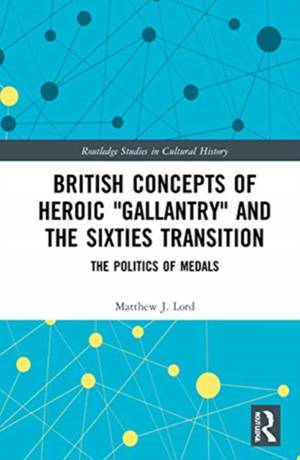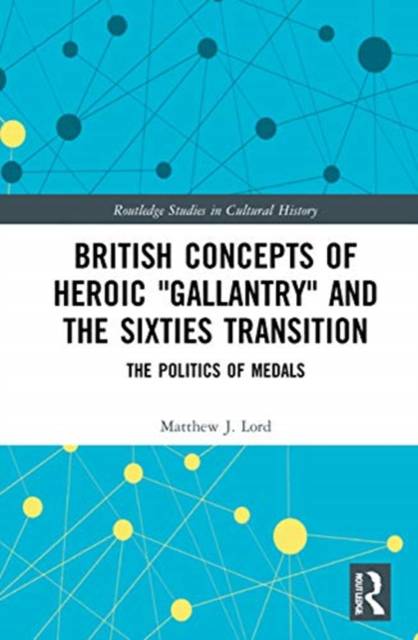
- Retrait gratuit dans votre magasin Club
- 7.000.000 titres dans notre catalogue
- Payer en toute sécurité
- Toujours un magasin près de chez vous
- Retrait gratuit dans votre magasin Club
- 7.000.0000 titres dans notre catalogue
- Payer en toute sécurité
- Toujours un magasin près de chez vous
British Concepts of Heroic Gallantry and the Sixties Transition
The Politics of Medals
Matthew J LordDescription
This book examines the relationship between concepts of heroic "gallantry," as projected by the British honours system, and the sociocultural, political, military and international transitions of the supposed Sixties "cultural revolution." In so doing, it considers how a conservative, hierarchical and state-orientated concept both evolved and endured during a period of immense change in which traditional assumptions of deference to elites were increasingly challenged. Covering the period often defined as "The Long Sixties," from 1955-79, this study concentrates on four distinct transitions undergone by both state and non-state gallantry awards, including developments within the welfare state, class and gender discrimination, counterinsurgency and decolonisation. It ultimately sheds fresh light upon the importance of postwar decades to the continued evolution of concepts of gallantry and heroism in British culture using a range of underexplored government and media archives. It will be of interest to scholars, students and general researchers of heroism in modern Britain, the Sixties revolution, postwar military history and both the social and political evolution of British honours, decorations and medals.
Spécifications
Parties prenantes
- Auteur(s) :
- Editeur:
Contenu
- Nombre de pages :
- 258
- Langue:
- Anglais
- Collection :
- Tome:
- n° 101
Caractéristiques
- EAN:
- 9780367769697
- Date de parution :
- 04-05-21
- Format:
- Livre relié
- Format numérique:
- Genaaid
- Dimensions :
- 152 mm x 229 mm
- Poids :
- 535 g

Les avis
Nous publions uniquement les avis qui respectent les conditions requises. Consultez nos conditions pour les avis.






